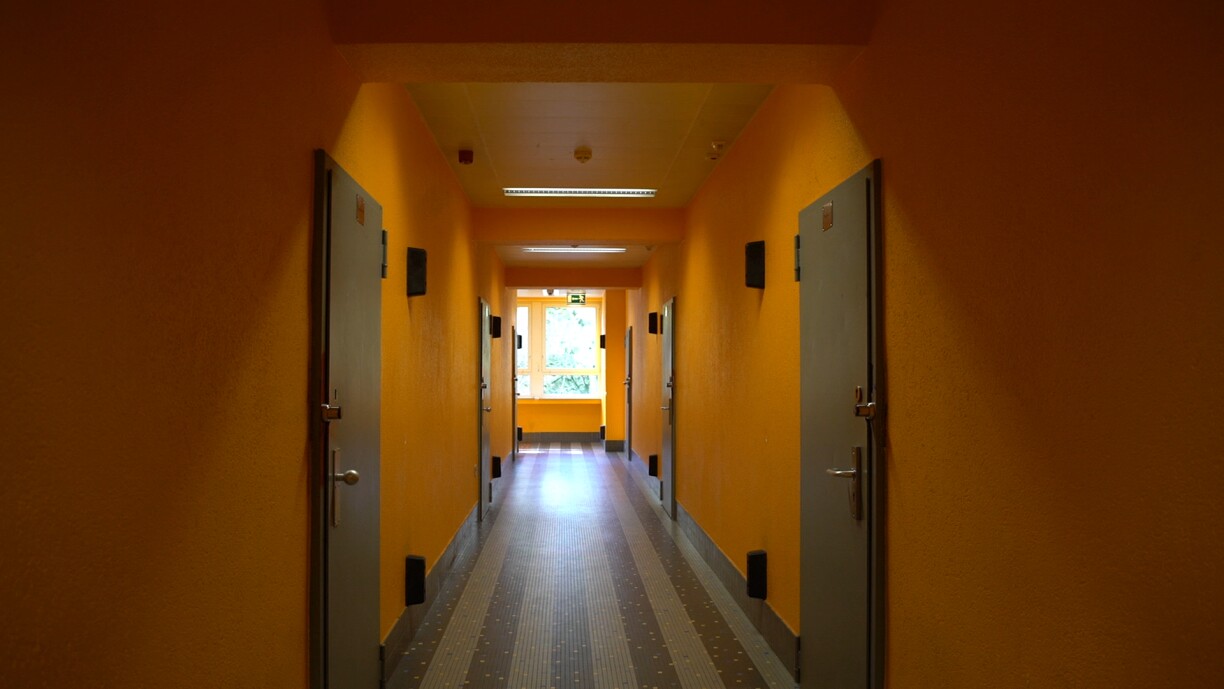
On Thursday 7 September the CPT published a report summarising the committee’s visit to Luxembourg’s detention centres in spring 2023, with the main objective of assuring Luxembourgish authorities’ compliance with recommendations issued following previous visits in 2009 and 2015.
The report highlighted the treatment of young offenders in particular, singling out the “deplorable” living conditions for children held at the Security Unit of the State Socio-educational Centre (Unisec) in Dreiborn, as well as poor conditions and lack of separation from adult detainees at the prison in Schrassig.
Although a youth protection reform bill was tabled in the Chamber of Deputies earlier this year, it has thus far failed to pass and is still undergoing amendments. The CPT acknowledged the steps towards reform, but commented that: “it is regrettable that the Luxembourg authorities have still not implemented the CPT’s recommendation, issued repeatedly since its very first visit in 1993, demanding that children no longer be incarcerated at the CPL.”
Despite some positive changes, the CPT called for stronger legislation to strengthen guarantees over child placement procedures, and urged authorities to improve living conditions at Unisec, as well as expanding the range of available activities with a view to reducing incidents of violence among the young residents.
Although the CPT delegation received no allegations of physical ill-treatment of minors during their visit, the placement of children at Luxembourg’s main prison remains a particular area of concern for the committee. In the report, the CPT said: “The delegation found that their living conditions at the CPL were unacceptable in view of the material conditions which were unsuitable for children, without strict separation from adult detainees, and the regime offered supervision which was impoverished, meaning that children were left to their own devices.”
Earlier this summer, there was uproar after a 13-year-old girl was detained in Schrassig due to lack of space at Dreiborn, drawing harsh criticism from the Ombudsman Claudia Monti, who declared the situation to be “unacceptable”. Until the necessary reforms are passed in parliament, the practice of placing children in adult prisons remains legal in Luxembourg. At the time, Monti highlighted that the incarceration of children and adolescents is inconsistent with human rights standards.
In August, a number of former State Socio-Educational Centre (CSEE) employees discussed their experience working at the secure units with RTL. Allegations of rampant drug use, inappropriate relationships and lax administrative duties emerged during the interviews, with the CSEE later issuing a statement to defend against the claims. Nevertheless, it is clear that reforms are sorely required within the sector - although Minister of Justice Sam Tanson admitted there were unlikely to be any changes until the next government is formed following the October elections.
The CPT delegation inspected police stations in the capital and Esch-sur-Alzette, as well as visiting two psychiatric units in the country. The report calls for stronger action against police ill-treatment and excessive use of force.
The committee said they had received a number of allegations of physical ill-treatment, insults and threats from people detained by Luxembourg police. Detainees said they had been beaten with truncheons, or punched and slapped by police officers while in custody. Such a case made headlines earlier this year after four police officers were arrested on suspicion of having used excessive force on a drunken individual detained in a sobering-up cell, while in August 2023, the General Police Inspectorate said it had dealt with 123 cases of alleged police violence since 2018.
Upon examining the facilities available, the CPT urged Luxembourgish authorities to halt the use of oppressively small ‘security cells’ for police questioning, calling the practice of using the 2-square-metre cells “humiliating, even potentially degrading” for those in custody. It also expressed concern over security measures used by officers, and highlighted worrisome practices such as a “lack of confidentiality during medical examinations, the systematic use of searches and handcuffing during transfers, and the practice of tying detainees to fixed objects in courts and hospitals”.
However, the CPT confirmed it had received no allegations of physical ill-treatment in Luxembourg’s prisons, and in fact praised the new Uerschterhaff facility for its “excellent” material conditions.

Upon visiting the closed psychiatry units in Ettelbruck and Esch-sur-Alzette, the CPT expressed concern over the use of mechanical and chemical restraints, and called for stronger safeguards for involuntary placements in these units.
The sector is facing a number of issues, including reduced capacity and lack of provision for patients, as well as staff shortages among psychiatrists. The CPT report said the committee had requested further information from the Luxembourg government on the required measures to address these issues.
Among the recommendations published was the urgent implementation of daily outdoor exercise for patients held in closed psychiatric units. In addition, the CPT called for better regulation of pro re nata (PRN) prescriptions, citing excessive use of tranquilliser injections. The delegation also observed excessive use of restraints on patients for long periods of time, without adequate observation by staff. The authorities are therefore required to strengthen safeguards for patients placed involuntarily in these wards.